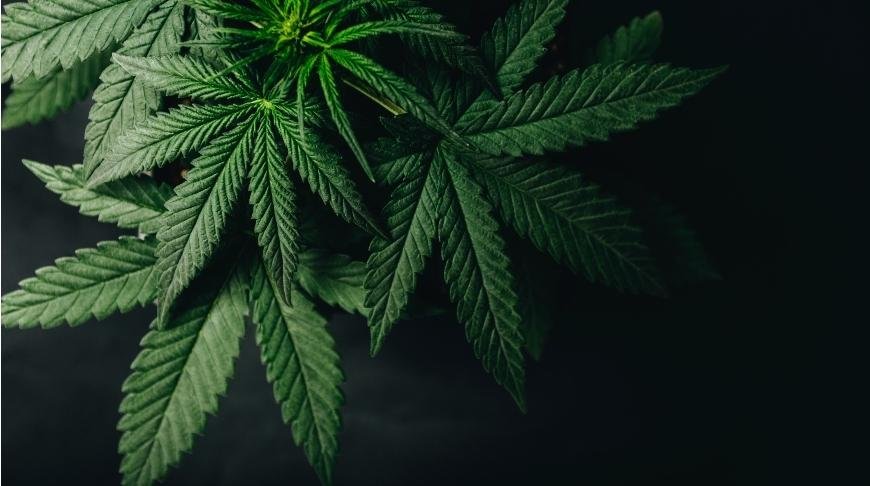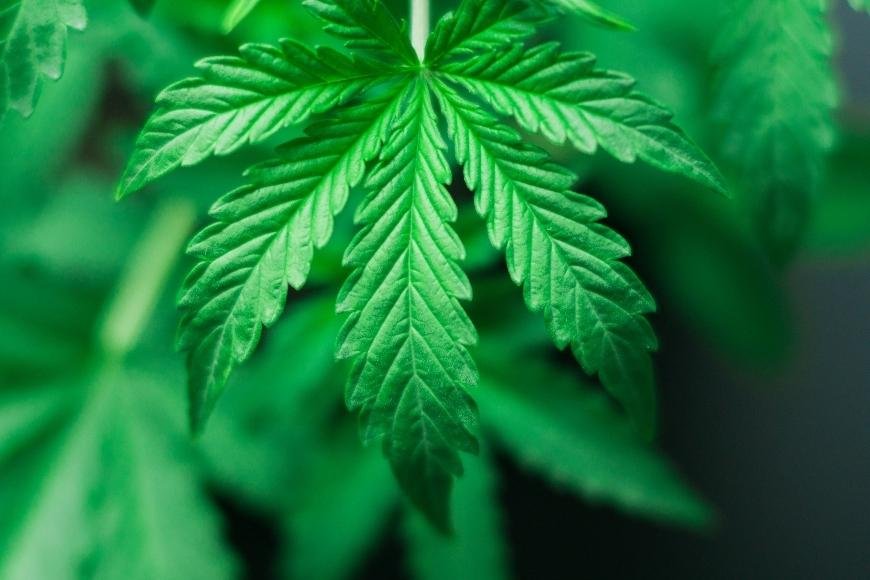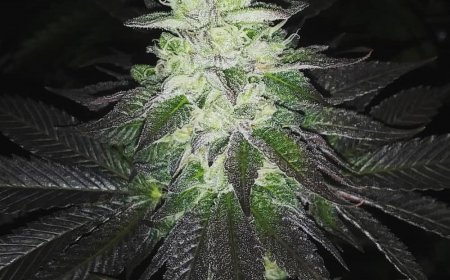Sulphur for Cannabis Plants
Learn about the importance of sulfur in growing cannabis and discover how to identify and fix sulfur deficiencies in your plants.

As a key nutrient for cannabis plants, sulphur plays a vital role in their overall health and growth. In this comprehensive analysis, we will investigate the significance of sulphur to cannabis plants and its role in their progress.
We'll begin by discussing the structure of sulphur and its function in promoting nutrient uptake within marijuana plants. We'll also examine how proper levels of sulphur contribute to maintaining optimal plant health.
Moving forward, we will identify common symptoms of sulphur deficiency in cannabis plants such as yellowing leaves, stunted growth, and reduced yields. You'll learn effective methods to diagnose and address these deficiencies by adjusting soil pH levels, using sulfur-based fertilizers, or incorporating organic matter into your growing medium.
Lastly, we'll highlight essential precautions against overuse of sulphur which can lead to toxicity issues or damage the plant's roots. By understanding how to maintain appropriate levels of this crucial element throughout your grow cycle, you can ensure healthy growth and maximize yields from your cannabis crops.
Table of Contents:
- The Role of Sulphur in Cannabis Growth
- Enzyme Formation and Protein Construction
- Chlorophyll Production and Photosynthesis
- Identifying Sulfur Deficiency Symptoms
- Addressing Sulfur Deficiencies
- Natural Sources of Sulphur
- The Impact of Sulfur on Cannabis Aroma
- Avoiding Sulfur Toxicity in Cannabis Plants
- Frequently Asked Questions Sulphur for Cannabis Plants
- Conclusion
The Role of Sulphur in Cannabis Growth
Sulphur is an essential secondary nutrient for cannabis plants, playing a crucial role in their growth and overall health. It is involved in various processes such as enzyme formation, protein construction, and chlorophyll molecule production - the latter being responsible for the plant's signature green color. Cannabis plants require sulfur throughout all growing stages but especially during the flowering stage.
Enzyme Formation and Protein Construction
Sulfur is an integral component in the production of amino acids, necessary for forming proteins within cannabis plants. These proteins contribute to several aspects of plant growth like cell division, tissue repair, and stress response management. In addition to this, enzymes containing sulfur help regulate numerous metabolic pathways that ensure healthy development throughout different phases of marijuana plant life cycles.
Chlorophyll Production and Photosynthesis
In order to perform photosynthesis effectively - converting sunlight into energy-rich glucose molecules needed by cells - cannabis requires sufficient levels of chlorophyll pigments present within leaf structures at any given time period during active vegetative or flowering stages alike. Chlorophyll production relies heavily upon available supplies found naturally occurring either through direct absorption via root systems from soil substrates or indirectly obtained after breaking down organic matter decomposing nearby on surface layers above ground where roots can access them more easily when required.
- Potassium sulfate: A popular choice among growers due its high solubility rate allowing quick uptake rates once applied directly onto foliage surfaces or mixed into irrigation water supplies.
- Calcium sulfate: Also known as gypsum, this mineral supplement provides both calcium and sulfur in a slow-release form that can help to improve soil structure and prevent nutrient imbalances.
- Epsom salts: Comprised of magnesium sulfate, Epsom salt is an easily accessible source of sulfur for cannabis plants. It can be dissolved in water and applied as a foliar spray or added directly to the growing medium.
Maintaining proper levels of sulphur throughout all stages will not only ensure healthy growth but also maximize yields during harvest time by supporting essential processes like enzyme formation, protein construction, and chlorophyll production within your marijuana plants' cells themselves.

Identifying Sulfur Deficiency Symptoms
Sulfur deficiency in cannabis plants can manifest in various ways, affecting the overall health and growth of your beloved green buddies. Recognizing these symptoms early on is crucial to take appropriate action and ensure a bountiful harvest.
Yellowing Leaves (Chlorosis)
The most common symptom of sulfur deficiency is chlorosis, which appears as yellowing leaves on newer growths while older leaves remain unaffected. This occurs because sulfur is partially mobile within the plant system, meaning it can be moved from older to younger parts when there isn't enough available for uptake by roots. Discoloration may also appear on leaf undersides, indicating that your marijuana plants are craving more sulfur.
Reduced Flower Development and Yield
If left untreated during the flowering stage, sulfur deficiency can have a detrimental impact on flower development. Buds might start dying off or not fully develop at all, leading to reduced yields at harvest time. As any cannabis enthusiast knows, this situation is far from ideal - after all, you're growing cannabis for those precious flowers.
To prevent such disappointing outcomes and keep your cannabis plants happy and healthy throughout their lifecycle, it's essential to stay vigilant about potential nutrient deficiencies like sulfur shortage. In our next section "Addressing Sulfur Deficiencies," we'll discuss some effective strategies for fixing this issue before it wreaks havoc on your crop.
Addressing Sulfur Deficiencies
To fix sulfur deficiencies in your cannabis plants, it's important to ensure proper watering practices along with maintaining optimal pH-balanced conditions within grow media environments before resorting to supplementation methods using Epsom salts or specialized fertilizers containing adequate levels of this vital element.
Adjust soil pH levels
Maintaining the right soil pH is crucial for nutrient uptake by your marijuana plants. For the best growth of cannabis, a slightly acidic environment with a pH range between 6.0 and 7.0 is necessary for optimal nutrient uptake by your plants. If the soil becomes too alkaline (above 7), sulfur availability decreases, leading to deficiency symptoms in your plants. To adjust the pH of the soil, you can utilize products such as elemental sulfur or aluminum sulfate to lower alkalinity and boost sulfur content.
Use sulphur-based fertilizers like potassium sulfate or calcium sulfate
- Potassium sulfate: Also known as potassium sulphate, this fertilizer provides both potassium and sulfur nutrients required by growing cannabis plants. It has a low salt index which makes it suitable for sensitive crops such as marijuana without causing root burn issues often associated with other high-salt-index fertilizers.
- Calcium sulfate: Commonly referred to as gypsum or plaster of Paris, calcium sulfate is another excellent source of supplemental sulfur for cannabis cultivation purposes due its ability not only provide necessary amounts but also improve overall structure while enhancing water infiltration rates among various types soils including clay-heavy ones prone compaction problems over time period usage.
It's essential to follow the recommended application rates for these fertilizers and monitor your plants' progress. If you notice any signs of sulfur toxicity, such as yellowing leaves or stunted growth, reduce the amount of fertilizer applied or consider using alternative sources like bone meal, which contains small amounts of sulfur in addition to other vital nutrients like phosphorus and calcium.
Natural Sources of Sulphur
Sulphur is an essential nutrient for cannabis plants, and it can be sourced from a variety of natural sources to provide the necessary sustenance without synthetic fertilizers. By understanding these sources, growers can ensure their plants receive the necessary sulphur to thrive without resorting to synthetic fertilizers.
Weathered Rocks
One way that sulphur enters the soil naturally is through weathering rocks. As rocks break down over time, they release small amounts of sulphur into the surrounding environment. This process provides a slow but steady supply of this essential nutrient to nearby plants.
Volcanic Activity
Volcanic eruptions are another significant source of sulphur in nature. When volcanoes erupt, they release large quantities of sulfur dioxide gas into the atmosphere. This gas eventually settles back onto Earth's surface and contributes to soil fertility by providing an influx of available sulphur for plant growth.
Evaporating Water
The evaporation process also plays a role in supplying soils with much-needed sulphurous compounds like magnesium sulfate (Epsom salts) or potassium sulfate (potassium sulfate). As water evaporates from bodies such as lakes or oceans, trace elements including sulfur become concentrated within remaining liquid portions before ultimately being deposited back onto land surfaces where subsequent precipitation events help distribute them throughout local ecosystems accordingly.
Manure
- Cow manure: Rich in organic matter and nutrients like nitrogen, phosphorus, potassium - along with smaller concentrations (e.g., 0.1% - 0.3%) of sulphur - cow manure is an excellent choice for improving soil fertility and providing essential nutrients to cannabis plants.
- Poultry manure: Similar to cow manure, poultry litter also contains valuable amounts of nitrogen, phosphorus, potassium as well as sulfur content ranging between approximately 0.25% up towards around half a percent (0.5%). This makes it another suitable option when seeking natural sources capable of delivering necessary sulphurous elements required by marijuana cultivars during various stages throughout their life cycles.
Incorporating these natural sources into your growing practices can help maintain optimal levels of sulphur in the soil while promoting healthy growth and development in your cannabis plants. By understanding how each source contributes to overall nutrient availability within garden beds or other cultivation environments alike, growers can make informed decisions about which options might best suit individual needs based upon specific circumstances at hand.
The Impact of Sulfur on Cannabis Aroma
One interesting aspect of sulfur in cannabis plants is its significant influence on the aroma profile. Recent research has uncovered volatile sulfur compounds (VSCs) present within aromatic profiles emitted naturally by maturing buds nearing completion right up until final curing processes have been completed post-harvest.
Volatile Sulfur Compounds (VSCs)
Volatile sulfur compounds are organic molecules that contain sulfur and exhibit strong, distinctive odors. In cannabis plants, these VSCs contribute heavily toward what many describe colloquially today simply as 'skunk-y' aromas. The presence of VSCs adds complexity to the overall scent profile of marijuana strains and can be an indicator of a high-quality product.
Skunky Aroma Profile
The skunky aroma associated with certain cannabis strains is often considered desirable by connoisseurs due to its unique and potent smell. Certain VSCs, such as thiols which are also present in other pungent substances like garlic and onions, are responsible for the skunky aroma of some cannabis strains that is often considered desirable by connoisseurs. By understanding how sulfur plays a role in producing these distinct smells, growers can better manipulate their cultivation techniques to produce more fragrant marijuana plants.
Health Benefits Associated with Garlic-Derived Counterparts
- Alliin: Alliin is a compound found in garlic that has antioxidant properties when converted into allicin during crushing or chopping.
- Diallyl sulfide: Diallyl sulfide helps protect against oxidative stress-induced cell damage caused by free radicals.
- Ajoene: Ajoene has been shown to have antithrombotic and anti-inflammatory effects.
While it is important to note that these health benefits are primarily associated with garlic-derived VSCs, their presence in cannabis plants suggests a potential for similar beneficial properties. Further research is needed to fully understand the implications of sulfur compounds in marijuana plants on human health.

Avoiding Sulfur Toxicity in Cannabis Plants
Overuse of sulfur can lead to toxicity or damage roots systems altogether. It's essential for growers to maintain proper sulfur levels in cannabis plants while avoiding issues related to overuse that may harm the plant's overall health and growth potential.
Recognizing Signs of Sulfur Toxicity
Sulfur toxicity is relatively rare, but it can occur if you're not careful with your nutrient management practices. Some common signs of sulfur toxicity include:
- Burnt leaf tips and edges
- Yellowing between veins on older leaves (interveinal chlorosis)
- Stunted growth and reduced yields
- Necrosis (dead tissue) on affected leaves
If you notice any of these symptoms, it's crucial to take immediate action by flushing your growing medium with clean water to remove excess nutrients, including sulfur. Additionally, make sure you are using a balanced fertilizer that provides all necessary nutrients without causing imbalances.
Balancing Nutrient Levels for Optimal Plant Health
To prevent both deficiency and toxicity problems related to sulfur or other nutrients, follow these best practices when growing cannabis:
- Maintain optimal pH levels: Ensure that the pH level in your soil or hydroponic system stays within the ideal range for cannabis plants - typically between 6.0-7.0 for soil-grown plants and around 5.5-6.5 for hydroponics.
Frequently Asked Questions Sulphur for Cannabis Plants
Is sulfur good for cannabis plants?
Yes, sulfur is essential for cannabis plants as it plays a crucial role in enzyme formation, protein construction, and chlorophyll production. It also contributes to the plant's natural defense mechanisms against pests and diseases. Proper sulfur levels help ensure healthy growth and optimal yield.
How much sulfur do cannabis plants need?
Cannabis plants typically require 0.1-0.5% of their dry weight to be composed of sulfur. This can vary depending on factors such as soil type, pH level, and nutrient availability. To maintain proper levels, use sulphur-based fertilizers like potassium sulfate or calcium sulfate according to the manufacturer's recommendations.
How often can you spray sulphur on cannabis?
Sulphur sprays should be applied cautiously to avoid toxicity issues or damage to beneficial organisms in your garden ecosystem. Typically, spraying once every two weeks during vegetative growth is sufficient; however, discontinue its use at least three weeks before harvest time due to potential taste alterations caused by residual compounds.
Conclusion
Without adequate levels of this nutrient, growers may notice yellowing leaves, stunted growth, and reduced yields. However, by adjusting soil pH levels, using sulphur-based fertilizers, and incorporating organic matter into the soil as needed, growers can address deficiencies and promote healthy plant development.
It's important to exercise caution when using sulphur to avoid toxicity or damage to the plant's roots. By maintaining proper sulphur levels for healthy growth and maximum yields, growers can enjoy successful harvests with their cannabis crops.




























































































































